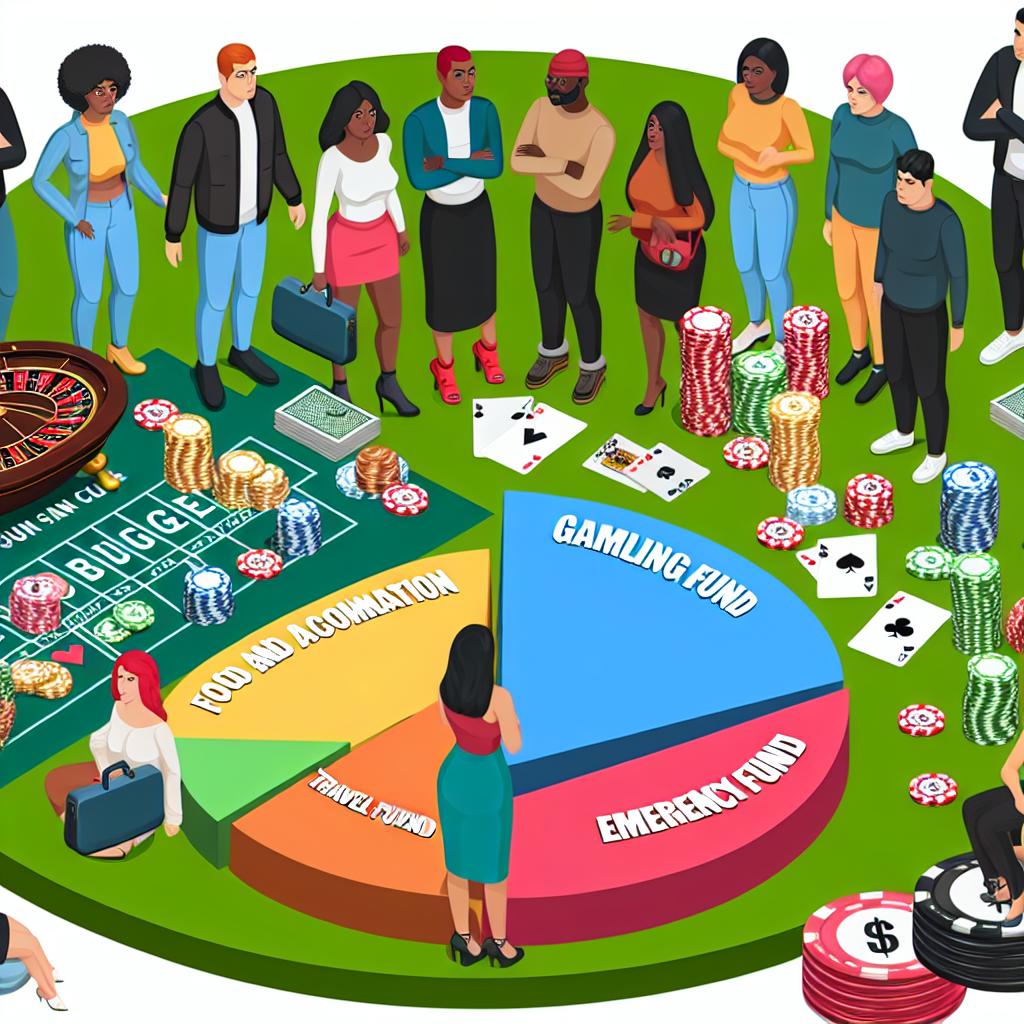Understanding the Importance of Budgeting for Casino Gambling
When engaging in casino gambling, it’s essential to set a budget to manage your expenditures and minimize potential financial losses. A well-defined budget not only helps maintain financial stability but also ensures a responsible gambling experience. This approach involves setting clear spending limits before participating in any gambling activity.
Assessing Your Financial Position
Before establishing a gambling budget, evaluate your current financial situation. Determine your disposable income by subtracting your monthly expenses from your total income. This assessment helps in knowing how much money you can safely allocate to gambling without affecting your essential expenses or savings goals.
Identifying Disposable Income
Analyzing your disposable income is crucial. Ensure that all critical needs and emergency savings are prioritized over any gambling-related expenses. Only consider funds that remain after these obligations as potentially usable for entertainment purposes, such as gambling.
Understanding your financial capacity enables you to set a ceiling on your gambling expenditure. Knowing your financial boundaries allows you to prepare for varied gambling outcomes without jeopardizing important financial responsibilities. It’s important to recognize that gambling should fall within your entertainment budget, not your primary living expenses.
Setting a Realistic Gambling Budget
After identifying your disposable income, decide on the exact portion to allocate for gambling. It’s important to be realistic and strict about this allocation to avoid financial stress. A general recommendation is to set aside a modest percentage of your disposable income that you are comfortable using entirely without expecting returns.
Consistency in Budgeting
Establish a regular budget, whether it is weekly, monthly, or per gambling session. Consistency in budgeting helps reinforce discipline and prevents excessive gambling. Remember, the allocated budget is not to be exceeded, regardless of wins or losses.
Maintaining consistency enables you to build the habit of disciplined gambling. This habit ensures your gambling activities remain recreational, preventing them from encroaching on your financial health. By adhering to regular budgeting, you reinforce prudent handling of gambling finances, helping avert panic when outcomes are unfavorable.
Tracking and Evaluating Gambling Expenses
Keep a detailed record of your gambling activities and their associated costs. This practice aids in understanding your gambling habits and adjusting your budget accordingly. Regular evaluation of these expenditures can provide insights into whether the gambling budget remains aligned with your financial goals.
Tools for Tracking
Consider utilizing financial management tools or applications to monitor and control your gambling-related expenses effectively. Some tools can help automate tracking, providing a clearer picture of your spending patterns over time.
These tools serve to provide a comprehensive overview of your gambling habits, assisting in identifying areas where you may need to exercise more restraint. Automated tools offer convenience by minimizing the manual effort required to track each transaction, thus enabling you to focus on maintaining a balanced approach to gambling.
Recognizing the Risks
It’s important to acknowledge the inherent risks involved in gambling. While setting a budget helps in managing your finances, it does not eliminate the potential for losses. Understanding these risks ensures that you approach gambling with an informed mindset and not as a method for earning money.
Responsible Gambling
Adopting a mindset of responsible gambling is crucial. Engage in gambling as a form of entertainment rather than an income source. Be aware of signs of problem gambling, and seek help if controlling spending becomes challenging. Various organizations provide support for maintaining gambling within healthy limits; consider exploring such resources if needed.
Responsible gambling is characterised by well-informed decision-making and adherence to set limits. Recognizing gambling as a leisure activity helps maintain an objective perspective, deterring the temptation to chase losses or deviate from your budget.
Adjusting Your Budget
Your financial situation and priorities may change over time, necessitating adjustments to your gambling budget. Revisiting your budget regularly helps in adapting to any changes in your disposable income or financial commitments.
Adapting to fluctuating financial circumstances allows for retained control over your gambling activities. Periodically reviewing your financial strategy ensures that gambling remains a managed part of your lifestyle, and any deviation from planned budgets is promptly addressed.
Further Information
For more detailed insights into responsible gambling and financial management, you might want to explore additional resources from trusted entities focused on these topics. One such resource is this site that provides comprehensive guidance in this area.
Understanding and implementing an effective budget greatly enhances the gambling experience by grounding it within the parameters of financial responsibility. Committing to thoughtful budgeting and informed gambling practices ensures that gambling remains an enjoyable activity balanced with broader life goals.
This article was last updated on: April 22, 2025

